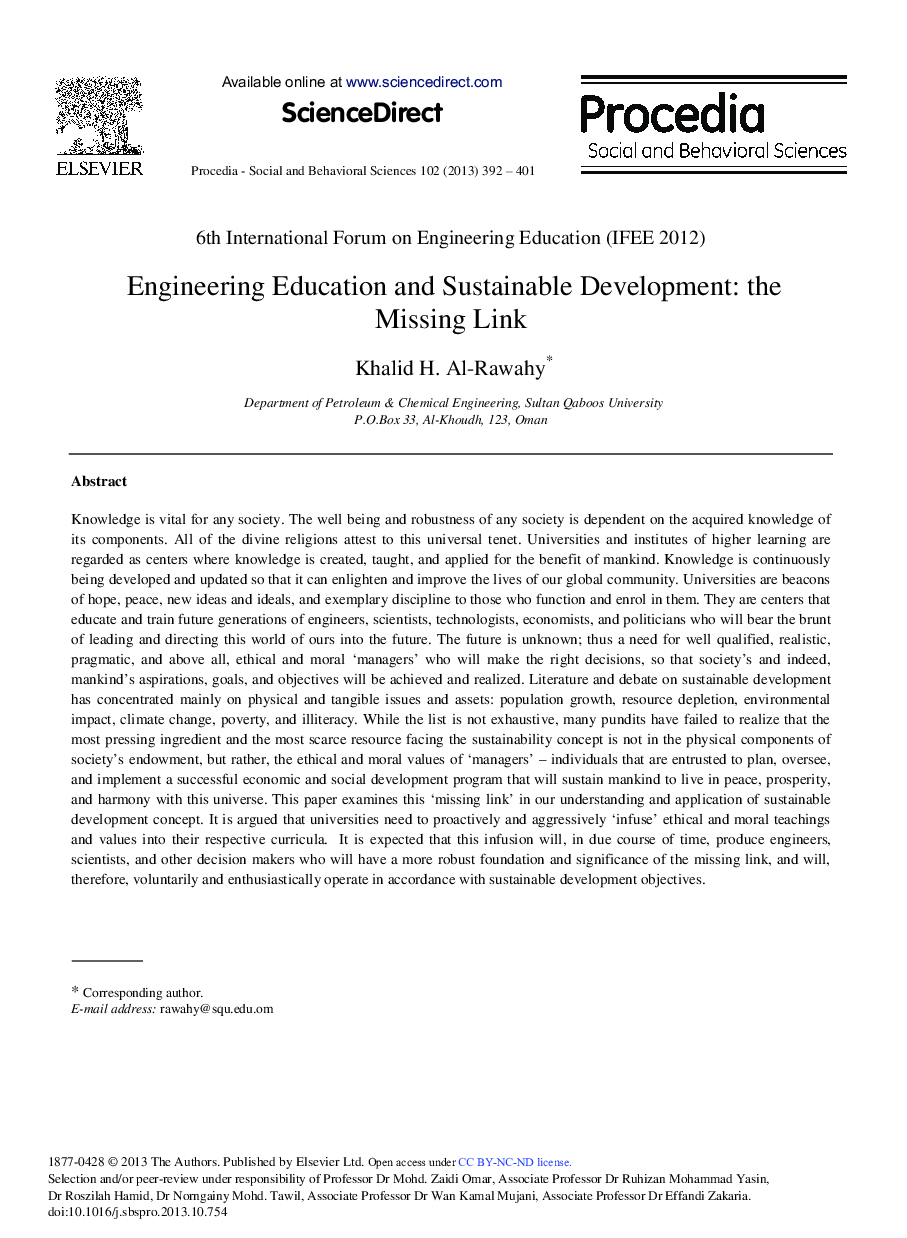| Article ID | Journal | Published Year | Pages | File Type |
|---|---|---|---|---|
| 1114998 | Procedia - Social and Behavioral Sciences | 2013 | 10 Pages |
Knowledge is vital for any society. The well being and robustness of any society is dependent on the acquired knowledge of its components. All of the divine religions attest to this universal tenet. Universities and institutes of higher learning are regarded as centers where knowledge is created, taught, and applied for the benefit of mankind. Knowledge is continuously being developed and updated so that it can enlighten and improve the lives of our global community. Universities are beacons of hope, peace, new ideas and ideals, and exemplary discipline to those who function and enrol in them. They are centers that educate and train future generations of engineers, scientists, technologists, economists, and politicians who will bear the brunt of leading and directing this world of ours into the future. The future is unknown; thus a need for well qualified, realistic, pragmatic, and above all, ethical and moral ‘managers’ who will make the right decisions, so that society's and indeed, mankind's aspirations, goals, and objectives will be achieved and realized. Literature and debate on sustainable development has concentrated mainly on physical and tangible issues and assets: population growth, resource depletion, environmental impact, climate change, poverty, and illiteracy. While the list is not exhaustive, many pundits have failed to realize that the most pressing ingredient and the most scarce resource facing the sustainability concept is not in the physical components of society's endowment, but rather, the ethical and moral values of ‘managers’ – individuals that are entrusted to plan, oversee, and implement a successful economic and social development program that will sustain mankind to live in peace, prosperity, and harmony with this universe. This paper examines this ‘missing link’ in our understanding and application of sustainable development concept. It is argued that universities need to proactively and aggressively ‘infuse’ ethical and moral teachings and values into their respective curricula. It is expected that this infusion will, in due course of time, produce engineers, scientists, and other decision makers who will have a more robust foundation and significance of the missing link, and will, therefore, voluntarily and enthusiastically operate in accordance with sustainable development objectives.
